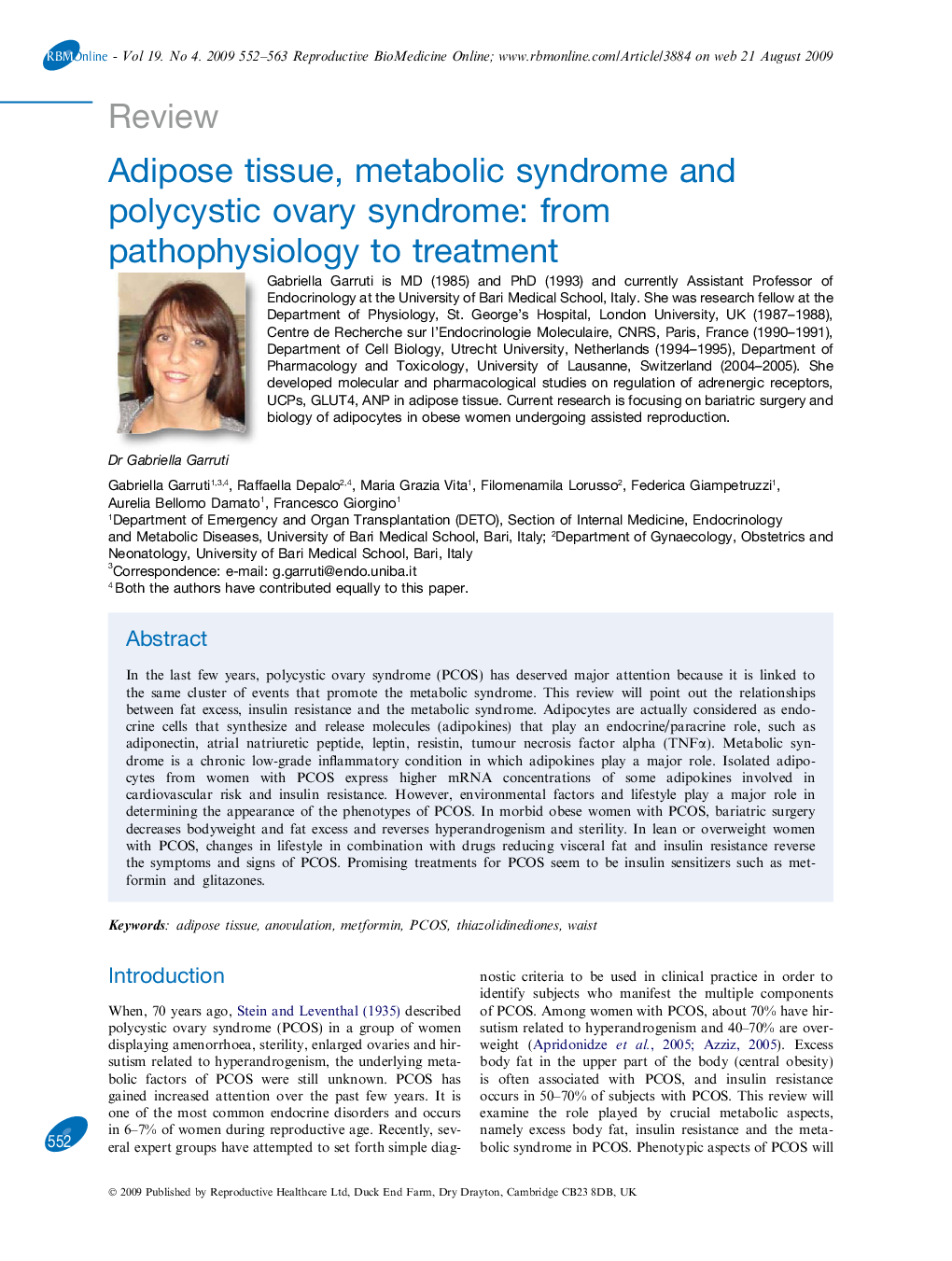| Article ID | Journal | Published Year | Pages | File Type |
|---|---|---|---|---|
| 3972181 | Reproductive BioMedicine Online | 2009 | 12 Pages |
In the last few years, polycystic ovary syndrome (PCOS) has deserved major attention because it is linked to the same cluster of events that promote the metabolic syndrome. This review will point out the relationships between fat excess, insulin resistance and the metabolic syndrome. Adipocytes are actually considered as endocrine cells that synthesize and release molecules (adipokines) that play an endocrine/paracrine role, such as adiponectin, atrial natriuretic peptide, leptin, resistin, tumour necrosis factor alpha (TNFα). Metabolic syndrome is a chronic low-grade inflammatory condition in which adipokines play a major role. Isolated adipocytes from women with PCOS express higher mRNA concentrations of some adipokines involved in cardiovascular risk and insulin resistance. However, environmental factors and lifestyle play a major role in determining the appearance of the phenotypes of PCOS. In morbid obese women with PCOS, bariatric surgery decreases bodyweight and fat excess and reverses hyperandrogenism and sterility. In lean or overweight women with PCOS, changes in lifestyle in combination with drugs reducing visceral fat and insulin resistance reverse the symptoms and signs of PCOS. Promising treatments for PCOS seem to be insulin sensitizers such as metformin and glitazones.
